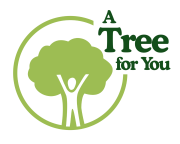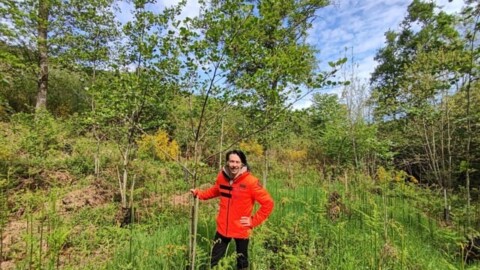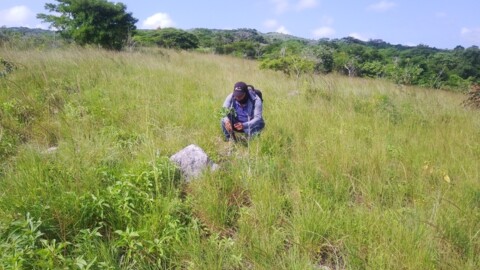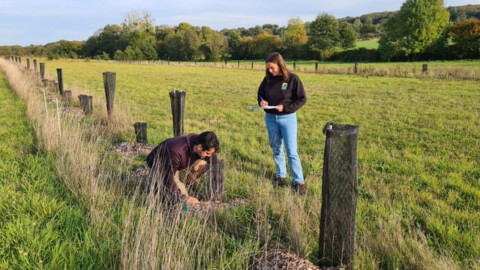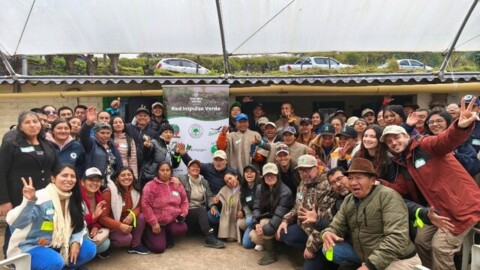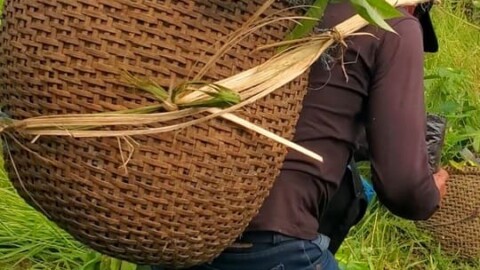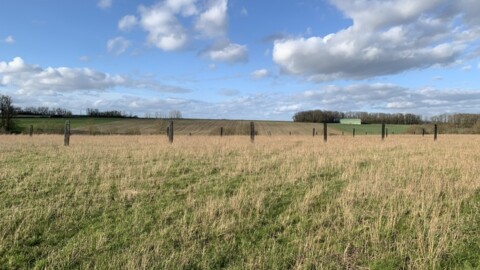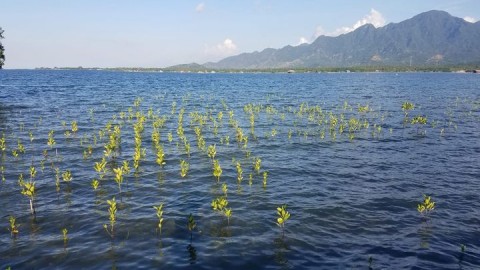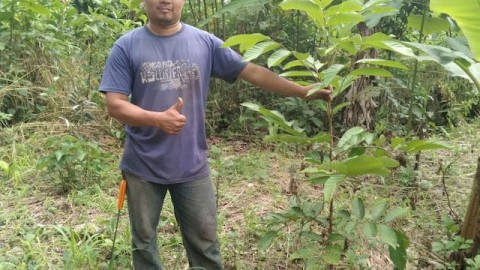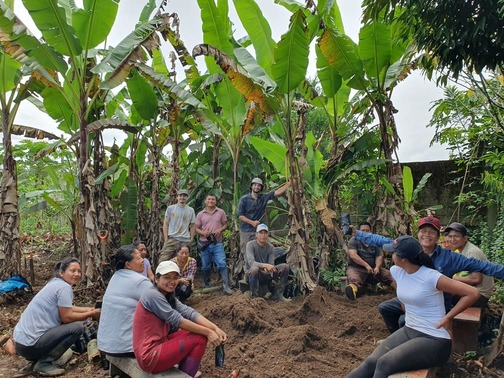
Tena, Ecuador, July 2025
Thanks to your support, the participatory reforestation project in the Ecuadorian Amazon has embarked on a new and ambitious phase spanning 2025–2029. In this first year alone, ten communities across three regions (Misahualli, Puerto Napo, and Archidona) have already committed, with over 191 families working to restore their land and diversify their livelihoods by creating agroforestry plots.
From the start of 2025, community meetings served to raise awareness of the project’s ecological and economic goals, identify participating families, and launch the first training sessions. Collective workdays, known as mingas, brought residents together to build 13 community nurseries, prepare soil and organic compost, pot seedlings, and learn transplanting techniques. These shared efforts not only strengthen local ties but also empower families to take ownership of the project.
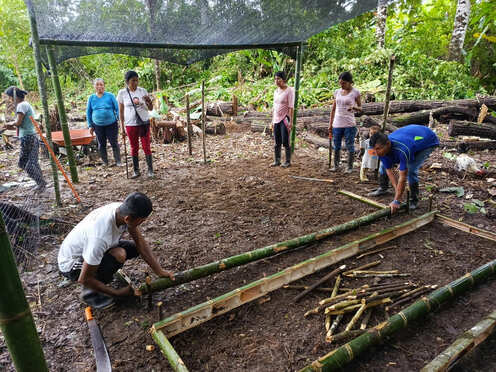
Nearly 46,300 trees thriving in nurseries
During this first semester, 19,898 timber trees and 26,376 fruit trees were produced across the 13 nurseries – a total of 46,274 seedlings are now ready to be planted by the end of 2025. The species have been selected to combine soil restoration, economic value, and ecological diversity: 13 timber species, several of which are endangered, and 27 local or adapted fruit species, including açaí, guayabilla, and paso. Two traditional medicinal species – Sangre de Drago and Lustunda – were also added to meet the needs of local families.
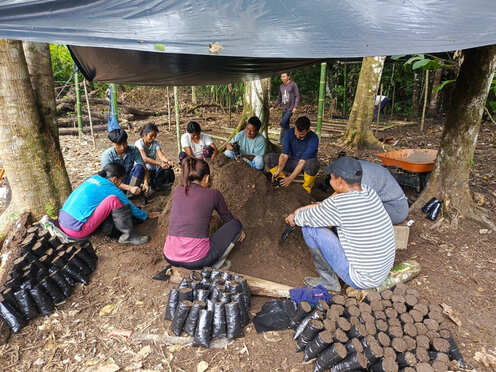
Communities united for a sustainable future
Most participants rely on subsistence farming and depend on fragile, intermediary-driven markets. Agroforestry offers them the chance to diversify crops, improve food security, and reduce their reliance on middlemen. In certain areas, the project also helps safeguard their territories from deforestation and the growing threat of mining.
The coming months will focus on planting the trees and providing tailored technical support to each family, ensuring the success of their plots and achieving a survival rate of at least 80%. For two years, regular follow-up visits will continue to train farmers in maintenance, pruning, and sustainable land management.
A project planting the seeds of the future
This first semester reflects the strong commitment and enthusiasm of these communities to build a more sustainable future where reforestation and economic autonomy go hand in hand. By helping restore fragile ecosystems while improving the livelihoods of local families for the long term, your support is making this collective effort possible.
